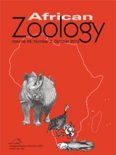
AFRICAN ZOOLOGY
Scope & Guideline
Exploring Africa's Rich Biodiversity
Introduction
Aims and Scopes
- Biodiversity Assessment and Conservation:
The journal emphasizes the documentation and analysis of species diversity, including new species discoveries and assessments of population status. This focus is crucial for informing conservation strategies and understanding ecological dynamics. - Ecological Interactions and Habitat Studies:
Research on species interactions, habitat associations, and community dynamics is a core area. This includes studies on how species respond to disturbances and changes in their environments, which is vital for ecosystem management. - Taxonomy and Systematics:
A significant portion of published works involves taxonomic revisions and molecular phylogenetics, aiding in the classification and understanding of evolutionary relationships among African species. - Impact of Environmental Changes:
The journal addresses the effects of climate change, land use, and human activities on wildlife, providing insights into vulnerabilities and adaptive strategies necessary for conservation. - Applied Research for Management and Policy:
Research that translates ecological findings into practical applications for wildlife management, policy-making, and community engagement is a distinctive feature of the journal.
Trending and Emerging
- Climate Change Impacts on Biodiversity:
Research addressing the effects of climate change on species distribution, behavior, and ecosystem dynamics has gained prominence, highlighting the urgent need for understanding these impacts for effective conservation. - Integrative Taxonomy and Molecular Approaches:
There is an increasing trend towards using integrative approaches, combining morphological and molecular data for species identification and phylogenetic studies, which enhances the understanding of biodiversity. - Conservation Strategies and Management Practices:
Papers focusing on practical conservation strategies, including habitat restoration, species reintroduction, and community-based conservation, are becoming more common, reflecting a shift towards applied research. - Human-Wildlife Interactions and Conflict Mitigation:
The examination of human-wildlife interactions, particularly in agricultural contexts and urban settings, is trending, emphasizing the need for solutions to mitigate conflicts and promote coexistence. - Impact of Invasive Species:
Research on invasive species and their ecological impacts is emerging as a critical area of study, particularly in relation to conservation efforts and ecosystem management.
Declining or Waning
- Marine Invertebrate Studies:
Research on marine invertebrates, which was previously prominent, has seen a decrease in the number of publications. This may be due to a growing emphasis on terrestrial ecosystems and higher-profile taxa. - Traditional Taxonomic Studies without Molecular Techniques:
There is a noticeable decline in studies that rely solely on traditional morphological taxonomic methods without incorporating molecular techniques. This shift reflects a broader trend in the field towards integrating genetic data for more robust species identification. - Urban Wildlife Studies:
While urban ecology remains important, specific studies focusing on urban wildlife interactions have waned, possibly as urban environments become less of a research focus compared to more pristine or threatened habitats. - General Ecological Observations:
Broad, non-specific ecological observations are less frequent as the journal increasingly favors studies with targeted hypotheses or management implications, leading to a more focused research output.
Similar Journals

CANADIAN JOURNAL OF ZOOLOGY
Pioneering Discoveries in Animal Behavior and SystematicsWelcome to the Canadian Journal of Zoology, a leading academic journal in the fields of Animal Science and Zoology as well as Ecology, Evolution, Behavior and Systematics. Published by Canadian Science Publishing since 1965, this esteemed journal serves as a vital platform for researchers, professionals, and students to disseminate and engage with significant findings in zoological and ecological research. With an impact factor placing it in the Q2 category and rankings reflecting its influence (201/490 in Animal Science and Zoology; 372/721 in Ecology), the journal is committed to advancing the understanding of animal biology and environmental interactions. Although currently not an open access publication, it provides comprehensive resources and studies that are crucial for the academic community. Based in Ottawa, Canada, the journal continues to push the boundary of knowledge right up to 2024 and beyond, making it an essential resource for anyone dedicated to the life sciences.

Journal of Fish and Wildlife Management
Empowering biodiversity through critical insights.The Journal of Fish and Wildlife Management, published by the U.S. Fish & Wildlife Service, serves as a vital resource for scholars, researchers, and professionals in the fields of Animal Science, Ecology, and Conservation Biology. With its ISSN 1944-687X, this esteemed journal has been disseminating critical research findings since 2010, contributing significantly to the understanding of fish and wildlife conservation practices and their ecological impacts. Despite its Q3 category rankings in various disciplines as of 2023, it provides a platform for innovative research that influences policy and management strategies for biodiversity conservation. The journal, although not open access, remains committed to advancing the scientific discourse surrounding wildlife management with articles that emphasize practical conservation efforts and ecological sustainability. Readers can expect a diverse range of articles that promote best practices in the management and conservation of fish and wildlife resources, furthering our collective mission of preserving ecological health and biodiversity for future generations.

Journal of Zoo and Aquarium Research
Exploring the depths of zoology and aquatic sciences.Journal of Zoo and Aquarium Research is an esteemed publication dedicated to advancing the field of zoology and aquatic sciences. Published by the European Association of Zoos & Aquaria (EAZA), this journal provides a dynamic platform for sharing groundbreaking research, best practices, and conservation efforts within zoos and aquariums, making it an invaluable resource for researchers, professionals, and students alike. With an increasing focus on the importance of biodiversity and sustainable practices, the journal is committed to fostering scholarly communication that enhances the understanding of animal care, species conservation, and habitat preservation. Although specific metrics such as impact factor and HIndex are currently unavailable, the journal's rigorous peer-review process ensures that only high-quality research is disseminated. As an open-access publication, the Journal of Zoo and Aquarium Research promotes accessibility to vital information, encouraging a broader engagement with critical issues in wildlife conservation. By addressing contemporary challenges in the field, this journal stands as a pivotal resource for those dedicated to promoting animal welfare and ecological sustainability.
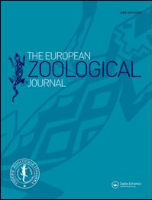
European Zoological Journal
Exploring the Wonders of ZoologyEuropean Zoological Journal, published by Taylor & Francis Ltd, is an esteemed open-access publication dedicated to advancing the exciting field of zoology. Since its inception in 2017, this journal has progressively established itself as a vital resource for researchers, professionals, and students alike. With its Q2 ranking in Animal Science and Zoology as of 2023, the journal ranks in the 69th percentile among its peers, showcasing its influence and contribution to the discipline. The journal’s broad scope covers a wide range of topics within zoology, aiming to foster an understanding of animal biology and conservation efforts. As an open-access journal, it not only enhances the dissemination of knowledge but also encourages collaborative research across global communities. Situated in the United Kingdom, the European Zoological Journal invites submissions that contribute to the evolving discourse in animal sciences, and endeavors to support the scientific community in addressing pressing ecological challenges.

Redia-Journal of Zoology
Exploring the frontiers of animal science.Redia-Journal of Zoology, published by the CRA-Research Centre Agrobiology & Pedology in Italy, is a distinguished academic journal dedicated to advancing the field of zoological studies through high-quality research and insightful reviews. With an ISSN of 0370-4327, this journal provides a platform for scholars and practitioners in the Agricultural and Biological Sciences to disseminate their findings and engage in meaningful discourse. Recognized in the 2023 Scopus rankings as Q2 in its category, Redia occupies a notable position within the global research community, ranked 138 out of 221 in Agricultural and Biological Sciences. The journal has a commitment to publishing original research from 2011 until 2024, contributing to the body of knowledge in diverse sub-disciplines of zoology, ecology, and conservation. While currently not open access, Redia strives to foster collaboration and discussion among researchers, making it a vital resource for advancing zoological sciences.
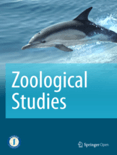
ZOOLOGICAL STUDIES
Connecting research and impact in zoological studies.Zoological Studies, published by the Biodiversity Research Center, Academia Sinica, stands as a pivotal journal in the fields of animal science and zoology. With the ISSN 1021-5506 and E-ISSN 1810-522X, this Taiwanese journal features a blend of pioneering research that spans over three decades, from 1994 to 2024, fostering a deep understanding of biodiversity and zoological phenomena. Recognized for its scholarly contributions, Zoological Studies holds an esteemed Q2 ranking in Animal Science and Zoology for 2023, positioning it among the top-tier journals in its category with a Scopus rank of #164 out of 490—reflecting its strong impact and outreach. While currently not open access, the journal aims to disseminate essential findings and discussions that advance ecological knowledge and inspire future research endeavors. Researchers, professionals, and students alike will find this journal an invaluable resource for accessing critical studies that drive innovation and conservation efforts in the field of zoology.
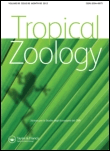
TROPICAL ZOOLOGY
Unveiling the mysteries of tropical animal life.TROPICAL ZOOLOGY is a prestigious academic journal dedicated to advancing knowledge and research in the fields of animal science, zoology, and ecology. Published by PAGEPRESS PUBL, this journal has been an integral part of the scientific community since its inception in 1988, providing a platform for the dissemination of innovative research and discoveries related to tropical wildlife and ecosystems. With an impact factor placing it in the Q3 category for both Animal Science and Zoology, as well as Ecology, Evolution, Behavior, and Systematics, it ranks among the noteworthy publications in these fields. Researchers, professionals, and students will find that TROPICAL ZOOLOGY is an essential resource for the latest findings, fostering a deeper understanding of biodiversity and conservation in tropical environments. The journal is based in the United Kingdom, with additional administrative support from MEDIGROUP in Italy, ensuring a broad international perspective and reach. While it does not operate under an open access model, it remains committed to high-quality peer-reviewed content that contributes significantly to the understanding of tropical ecosystems and the species that inhabit them.
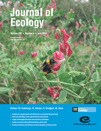
JOURNAL OF ECOLOGY
Innovating insights into evolution and behavior.JOURNAL OF ECOLOGY, published by Wiley, stands as a leading publication in the field of ecology, evolution, behavior, and plant science, currently positioned in the prestigious Q1 quartile across these categories. Established in 1976, the journal has consistently provided a platform for innovative research and critical discourse related to ecological patterns, processes, and interactions. With its robust Scopus ranking—31st out of 721 in Ecology, Evolution, Behavior and Systematics, and 26th out of 516 in Plant Science—this journal notably reflects the high impact and influence of its articles in the scientific community. Although it does not offer open access options, the journal ensures comprehensive dissemination of pivotal findings to researchers, professionals, and students alike. Located in the United Kingdom at 111 River St, Hoboken, NJ, the JOURNAL OF ECOLOGY remains an essential resource for those dedicated to advancing our understanding of ecological systems and their complexities.

SPIXIANA
Unveiling the Secrets of Animal BiologySPIXIANA is a distinguished journal dedicated to the fields of animal science and zoology, published by VERLAG DR FRIEDRICH PFEIL in Germany. With the ISSN 0341-8391, it has been contributing to the scientific community since its inception, with volumes converging from 2008 to 2024. Although currently listed in the Q4 quartile of the 2023 category rankings for Animal Science and Zoology, it provides a vital platform for researchers and professionals to disseminate significant findings in the field. Despite being unindexed in open access, SPIXIANA ensures that vital research reaches its audience, enhancing academic discourse and furthering our understanding of zoological sciences. Its commitment to sharing rigorous scientific research make it an important resource for anyone passionate about animal biology and conservation.

California Fish and Wildlife Journal
Bridging Research and Practice in California's Natural ResourcesCalifornia Fish and Wildlife Journal, published by the California Department of Fish and Wildlife, is a pivotal platform dedicated to advancing the understanding of fish and wildlife management and conservation. As an open access journal, it fosters collaboration and knowledge sharing among researchers, practitioners, and students interested in aquatic and terrestrial ecosystems. With a focus on empirical research, policy implications, and innovative conservation strategies, the journal plays a crucial role in informing both scientific communities and decision-makers alike. Researchers seeking to contribute to critical discussions on sustainability, habitat preservation, and biodiversity will find this journal an essential resource. The journal’s commitment to disseminating knowledge about California's rich natural resources enhances its stature in the field of wildlife management and conservation studies.